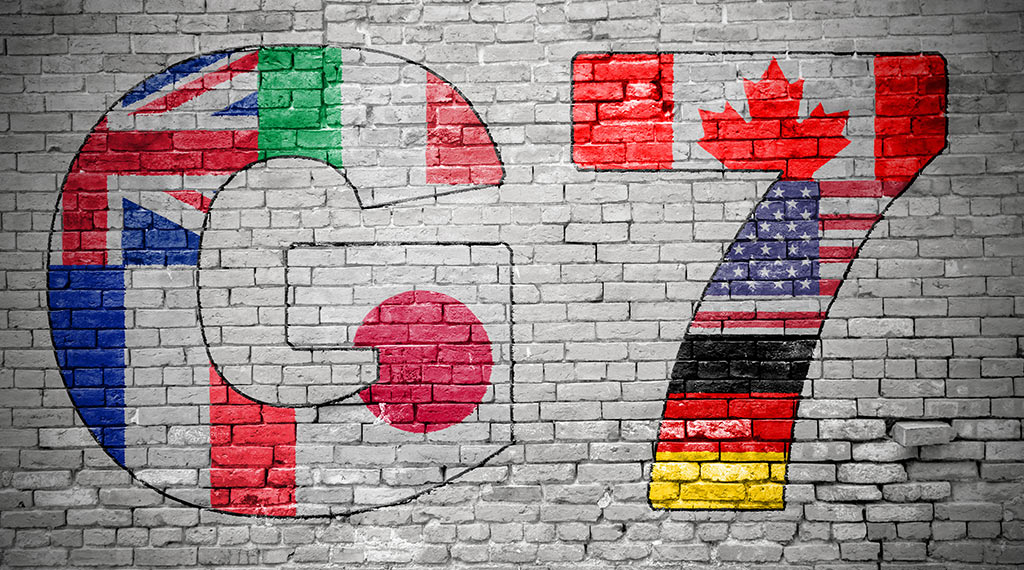As G7 titans consider China strategy, Australia’s bold stand shows meaningful role of smaller nations

In April 2020, Australian Prime Minister Scott Morrison was an early and assertive voice calling for an independent investigation into the origins of the COVID-19 pandemic. China responded first with rhetorical venom, calling Australia “chewing gum stuck on the sole of our shoes.” Next came a raft of serious economic sanctions.
China is Australia’s largest trading partner, and Australia is one of the few developed countries in the world that has a trade surplus with China, accounting for 20% of exports. China imposed tariffs on Australian commodities, including wine and barley, and limited imports of beef, coal, grapes and lobster.
Australia has crossed China on important economic matters before. In 2018 it withdrew from a belt-and-road-style communications scheme, banning Huawei 5G network equipment. It is sending signals that its latest defiant posture is not an act. “Despite opposition, our network of global and regional relationships vital to our national interest continues to accelerate,” Morrison said.
In fact, Canberra claims that much of its shortfall in trade with Beijing has been made up by boosting exports to allies, and it is pursuing free trade agreements with the United Kingdom and the European Union. They are initiating creative relationships with new countries, for example sending their first shipments of barley to Mexico.
Australia is also going on offense, launching an appeal at the World Trade Organization.
“The most practical way to address economic coercion is the restoration of the global trading body’s binding dispute settlement system,” Morrison said in a speech in Perth. “Where there are no consequences for coercive behavior, there is little incentive for restraint.”
Due to its location, Australia is also more intimately tied to Asia in geostrategic terms than its Western allies and is therefore more vulnerable to Chinese aggression. Consider that while the United States fought the 1940s Pacific War mainly at a considerable distance from its home territory, the Australian mainland city of Darwin was bombed by hundreds of Japanese planes in 1942 resulting in at least 235 deaths.
Australia understands that its military, and possibly its home territory, could quickly become entangled in a conflict touched off by China’s potential invasion of Taiwan. “The Indo-Pacific region – Australia’s region – is the epicenter of renewed strategic competition,” Prime Minister Morrison said. “The risks of miscalculation and conflict are growing. And the technological edge enjoyed historically by Australia and our allies is under challenge.”
Australia has pushed for acceleration of the Quad security relationship, which includes the United States as well as fellow regional stakeholders Japan and India, to act as a counter against China’s increasing assertiveness in the Indo-Pacific.
Australia’s geopolitical situation reflects the difficult realities of an economically interconnected world. Antagonisms with a powerful global player like China have real economic consequences. Countries may have to be willing to bear those consequences to protect their national security. As a nation with a small population next to the Chinese behemoth, Australia’s policy selections may have particularly grave consequences and will become existential long before those of the United States, which has the luxury of thousands of miles of Pacific Ocean to protect it.
“We are far from isolated – we have worked hard to ensure we are not a nation that can be easily marginalized and driven to unacceptable compromises,” Morrison said in a speech in Perth on Wednesday, before he headed overseas to attend the G7 leaders’ summit. He will be a guest of United Kingdom Prime Minister Boris Johnson. Perhaps with the ear of Johnson and the other six great power leaders, he will be able to impart some valuable perspective from a junior but maverick player in the global chess game to counter China’s rise.
- Nearly half say coronavirus is man-made; 29% say it was intentionally released - February 17, 2022
- Americans back total boycott of Beijing Olympics under certain conditions - December 13, 2021
- Beijing pushes limits of authoritarian reach with latest celebrity “disappearance” - November 19, 2021
